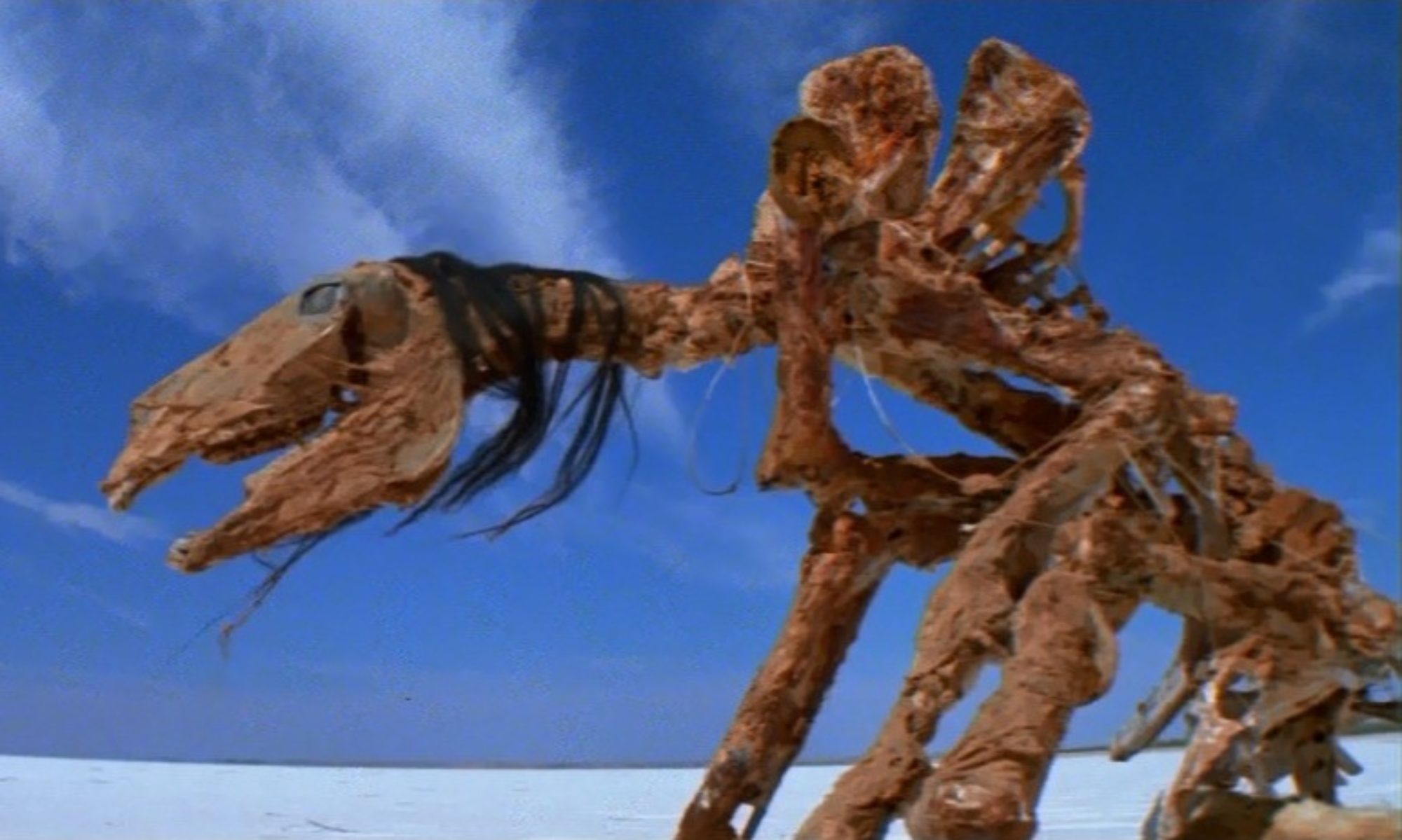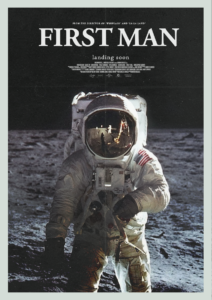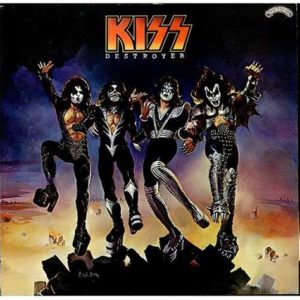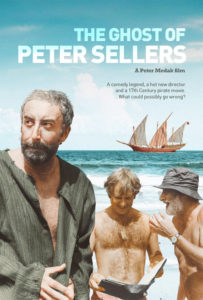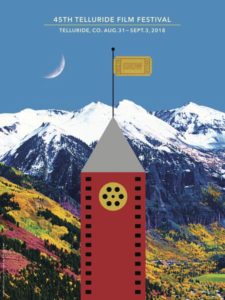 Here it is, kids. For the first time in years, I’m writing about my time in Telluride. Or any festival, for that matter. We’ll see how this goes.
Here it is, kids. For the first time in years, I’m writing about my time in Telluride. Or any festival, for that matter. We’ll see how this goes.
There’s just something about being 9,000 feet up that makes movies that much better. I could be watching the shittiest piece of shit, but I’ll still enjoy something about it just because I’m in that little box canyon. I don’t get the same thrill from South By Southwest or Fantastic Fest, although both of those festivals hold big pieces of my heart.
Telluride really is all about the films. There’s no red carpet. There’s no press junket. There’s no barrier between the celebrities and the moviegoers. There’s a higher ratio of “prestige pictures” than most other festivals I go to. Sadly, that means less genre. But it also means that there are more great films. Definitely more films that you’ll end up hearing about come award season.
Anyway, on to the movies!
FIRST MAN





Directed by: Damien Chazelle
Written by: Josh Singer
Based on book by: James R Hansen
In divided times like these, it’s good to see a story about a human achievement that so many thought impossible.
Damien Chazelle, last heard from nearly winning Best Picture for La La Land, teams up again with Ryan Gosling to tell the story of the first man to step foot on the moon. Neil Armstrong was a complicated man. He kept to himself, even when around his wife Janet (Claire Foy). After the death of their daughter, life didn’t seem to have much meaning for Neil, so he put his entire life into becoming an astronaut, really even before the term had been created.
Gosling plays him with is normal stoicism and, once again, it works. I love The Goz, but I think I’ve finally realized that he’s always basically playing the same character. Luckily, that character typically works for the movies that he’s in. And Neil Armstrong is the perfect vehicle for him. Claire Foy was his absolute equal as a woman who was just done with her husband risking his life because he couldn’t feel anything else anymore.
This was, quite possibly, my favorite film of the festival. It’s understated for a film about such an important moment, but there’s plenty of tension even if you know the story perfectly well. And the cast is full of familiar faces: Ciarán Hinds, Kyle Chandler, Ethan Embry, Lukas Haas, Jason Clarke (who I’m always confusing with Patrick Wilson), Patrick Fugit…so many people that I didn’t even realize were in the movie until just now looking at the cast list.
Go see this movie. No matter what Marco Rubio says (he’s absolutely wrong, by the way), this is a movie that will make you proud to be human.
BE NATURAL: THE UNTOLD STORY OF ALICE GUY-BLACHE





Directed by: Pamela B Green
Written by: Pamela B Green/Joan Simon
Did you ever hear the story of Alice Guy-Blaché?
Yeah. I thought not.
Turns out, she was pretty much the first narrative filmmaker. She worked with the Lumière Brothers (and attended their first secret screening) and said, “Why don’t we tell stories instead of just plunking the camera down and waiting for something good to happen?”
She went on to make over 1,000 films, some of which were highly influential. But no one has ever heard of her. Not even Peter Bogdanovich knew who the hell she was. We’ve all heard of the Lumières and Méliès, but Guy-Blaché is a complete mystery.
Pamela B Green is out to change that. Over the last few years, she has done a ton of detective work to find Alice’s history and bring her into the books just like her male counterparts. And she’s doing it with an enigmatic film that traces film history from its beginnings to today. (I had never thought of how the YouTube generation is making films really close to the early filmmakers. Typically, they’re doing this unwittingly, but a few get it…I think…maybe.)
I loved this movie. From the opening animation (moving backward in film history from LA to NYC to Paris) to the narration by Jodie Foster to the interviews with current filmmakers who are learning about Alice for the first time, this is a fun, eye-opening film about the who women have been erased from so much history.
(To be fair, Green doesn’t say that Alice was written out of history JUST because she was a woman. That was a big part of it, though. Most film historians for many years were men and Alice’s films were basically lost. They also were friends with the men who they often gave credit to for her films. So it was a mix of sexism and nepotism that lost Alice her place in history..until now.)
Time to rewrite those history books. Alice Guy-Blaché is coming for you.
THE GREAT BUSTER





Directed by: Peter Bogdanovich
Written by: Peter Bogdanovich
Buster Keaton is one of the greats of silent film. He sometimes gets lost in the shuffle because of Chaplin (who was amazing), but he absolutely deserves to be pulled back into the spotlight. In fact, it might be a perfect time to reassess Buster. Chaplin’s sincerity and sentimentality are great, but they don’t reflect our times anymore. We need The Great Stone-Face that shows so much emotion without showing a bit.
Peter Bogdanovich is the consummate film historian. He’s been at it for a long time and was friends with a lot of the old classic film stars and directors. He never got to meet Buster, but his love for the man and his gifts shows through in every frame of this documentary.
I learned a lot from the film, but I wouldn’t say it’s a particularly in-depth investigation. Anyone who knows much about the man and his films won’t get much out of it, but they will have fun putting some of his films in the context of his life and the state of film at the time.
Unfortunately, the same couldn’t be said for the Q&A session after. Boggy and Leonard Maltin seemed to just be two old men trying to one-up each other on how much they love Buster.
But you won’t have to sit through that. Just sit back and enjoy the story of Buster Keaton and how he changed comedy forever right at the beginning of film history.
THE OTHER SIDE OF THE WIND





Directed by: Orson Welles
Written by: Orson Welles/Oja Kodar
Speaking of Boggy and his old friends, this is the final film of his most famous old friend, Orson Welles. Over 40 years ago, Welles got a bunch of his friends together and put them all in a film about an aging film director named Jake Hannaford (John Huston) and his sycophants having a birthday party on the last day of his life. Peter plays his lead sycophant, Brooks Otterlake. Susan Strasberg is a Pauling Kael-esque critic talking about how Hannaford and his ilk are terrible to women. Robert Random and Oja Kodar (Welles’ squeeze at the time) are seemingly the only two people in Hannaford’s last film, which makes no sense to the studio people watching the footage. It just looks like a bunch of artsy nudity with no point. Of course, his hangers-on all think it’s his masterpiece.
F For Fake, which was Welles’ last finished film, is great. The editing is crazy and the style is modern. It’s a weird mishmash of documentary and narrative about frauds and magic.
The Other Side Of The Wind is edited in the same style. According to Bogdanovich and Frank Marshall, this was because there was no budget and he had to edit together what he had, shotting when he could, often years apart. Then he would take years to edit. So we’re lucky to get the backs of peoples’ heads as they’re talking. As revolutionary as this editing style is, it’s also a little unnerving. And, while F For Fake is barely an hour and a half, this film is over two hours or constant cutting back and forth between about 200 different characters in three or four different scenes. Welles cut a lot of his later films like this out of necessity. I wonder if he meant it to be seen as revolutionary or if he was pissed off that he had to do it this way.
Overall, The Other Side Of The Wind is an interesting mess. I don’t know if I can truly recommend it to people who aren’t huge fans of Orson Welles. I love the contrast between Old Hollywood and New Hollywood. There’s also the fact that Welles can obviously see how the News are holding up the Olds even when they’re obviously past their prime. Welles loved John Huston, but by the time this film was being made, he was done making great films, unless you consider Annie to be a “great film.” Maybe The Dead?
One thing that really struck me was how misogynistic the characters are. I wasn’t sure if we were supposed to like Hannaford or not. Luckily, the Q&A was there to help. Apparently, even though Welles treated his wives like shit, he hated the macho grandstanding of so many classic Hollywood filmmakers. (After all, he is one of the few filmmakers who actually cited Alice Guy-Blaché as an influence in Be Natural. He and Hitchcock, believe it or not.) Hannaford was actually supposed to be the villain of this film, which makes me feel a little bit better.
I don’t know. I might need to see this film again to really figure out how I feel about it. But on first viewing, I think I kinda like it but don’t think it’s anywhere near a masterpiece.
THE FAVOURITE





Directed by: Yorgos Lanthimos
Written by: Deborah Davis/Tony McNamara
Yorgos Lanthimos is an interesting filmmaker. His films tend to be nearly impenetrable, emotionless, and hilariously detached. And, yet, everyone loves them because they’re so bizarre and funny.
Granted, I’ve only seen The Lobster, but that tends to be the going opinion of his films.
The Favourite is different…but the same. I think it’s far more mainstream than The Lobster, but it still keeps the semi-detached style of the earlier films.
Lady Sarah (Rachel Weisz) is Quen Anne’s (Olivia Coleman) best friend and confidant. Really, Lady Sarah is the queen while Anne is a whiny, indecisive, ill-prepared figurehead.
Along comes Abigail (Emma Stone), a young woman who claims to be related to Sarah. She is put to work in the kitchens and, despite all odds, starts to work her way up to the queen and vies for Sarah’s place at her side.
The script is witty, the acting is great and this might be Lanthimos’s most accessible film yet, even though it’s still dark and, at times, so tense that it’s hard to watch.
See this one with your best friend. Then hope that they’re not conniving to take your place.
(PS – I think Rachel Weisz is the new Helena Bonham Carter. I’m perfectly ok with this.)
DESTROYER





Directed by: Karyn Kusama
Written by: Phil Hay/Matt Manfredi
Full disclosure, here: I was among the only people who liked this movie. Everyone else told me how awful it was. I don’t believe them. At all.
Erin Bell (Nicole Kidman) could be called broken. She could also be called a Destroyer. She’s destroyed her career. She’s destroyed her family. She’s destroyed herself.
And she’s a cop.
Years ago, she and Chris (Sebastian Stan) went undercover to break up a cult-like group of bank robbers. The leader, Silas (Toby Kebbell), is a sadistic piece of shit who, if he wasn’t a villain, he wouldn’t be anything.
Now it looks like Silas is back and Erin is taking it upon herself to go after Silas even though she can barely stand on her own because of her own addictions.
Nicole Kidman is amazing, as always. She embodies addiction, depression and the end of days. Her attempt at reconciling her past is heartbreaking and harsh. This is a dirty, gross film and Nicole a force to be reckoned with.
THE GHOST OF PETER SELLERS





Directed by: Peter Medak
In 1972, Peter Medak was on his way up. He had just made The Ruling Class with Peter O’Toole and won the Palme d’Or at Cannes. O’Toole was nominated for an Oscar. The film was nominated for a Golden Globe. His next film, A Day In The Death Of Joe Egg, was nominated for a few awards, too, even though it’s not as well-known today.
So, what do you do next? You torpedo your career by making a film with no script and the most self-destructive comedian of the time. Of course.
This is Medak’s documentary about making a doomed film that, unfortunately for him, was finished. Ghost In The Noonday Sun was finally released 10 years later on pay TV and it is apparently nearly unwatchable. What was the problem? Well, Sellers sold Medak on the movie. Then, a week after filming started, he wanted to be fired from it. He was bored. He hated every minute of being on set. He just wanted to go home. He threw tantrums. He faked a heart attack. He brought his best friend/worst enemy (Spike Milligan) to finish the script, but it never truly got finished.
Like Lost In La Mancha before it, The Ghost Of Peter Sellers shows what can happen when everything goes wrong on a set. It’s also Peter Medak going back to get some sort of closure on it and the death of his friend who was much more self-destructive than anyone really knew. It’s a really good film that’s kinda heartbreaking in its way.
REVERSING ROE





Directed by: Ricki Stern/Anne Sundberg
This is a scary time for women. It’s a scary time for anyone with a brain. Roe v Wade, the landmark Supreme Court decision that made abortion legal in the US is in danger of being overturned basically at any minute. And with a new, very conservative Justice possibly on his way into the Supreme Court, it could actually happen.
Reversing Roe is a film about that struggle, but it’s also about the history of abortion in America. Director Ricki Stern was appalled when she spoke to some young women who didn’t understand what the big fuss was about. Why is Roe v Wade so important? Why should we care if abortion is legal? We don’t plan on getting one!
So she and her directing partner, Anne Sundberg, set about to teach everyone within the sound of their cinematic voice exactly why they should be worried. They go back to a time when women were dying in back allies because abortion was illegal. Then they take us through the passing of Roe v Wade when the Republicans pushed for it to be passed. (That’s right. It was basically a bipartisan effort, but the Republicans really spear-headed it.) Then we see how the evangelicals took over the Republican Party and turned them into the anti-choice party. And how they created the concept of “partial birth” abortions, something that doesn’t actually exist.
This film isn’t going to change anyone’s minds, unfortunately. Vehemently anti-choice people will never watch it. Or, if they do, they won’t believe it. But it’s very important for another reason: to make people who are on the fence see how important this decision is and why it MUST NOT be overturned. That is why it’s highly recommended to anyone with an open mind.
See this film on Netflix. It’s getting a release before the midterms.
And vote blue.
THE OLD MAN & THE GUN





Directed by: David Lowery
Written by: David Lowery
Based on article by: David Grann
This is it, y’all. Robert Redford is done. This is his last film. He says he’s retiring from acting after this.
Dammit.
Luckily, it’s a good one!
Forrest Tucker (Redford) is a career criminal. Ok. He’s a little more than that. He’s escaped from some sort of prison 16 times. Every time he’s started robbing banks again almost immediately. He just can’t help himself.
This last time, he’s in Texas and he meets Jewel (Sissy Spacek) just after his latest job. Will he stop robbing banks for her? Or will he keep on going with his buddies, Teddy and Waller (Danny Glover and Tom Waits)? Or will John Hunt (Casey Affleck) catch up to him and arrest him?
This is a really fun, old-school crime flick with super charming performances by everybody. It’s quiet (like most of Lowery’s films) and probably the most fun film I saw at the festival.
And it’s a great way to close out this review. It was good to be back at the Telluride Film Festival!
